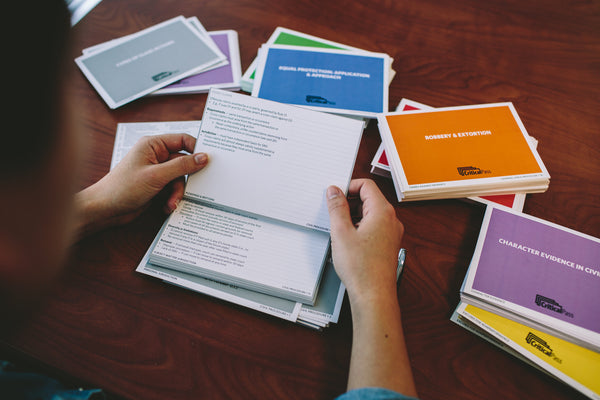Chemistry is commonly referred to as the hardest A level course, not just for the difficult content but also because you’re expected to apply it to a wide variety of situations. This means that exam technique is essential for scoring those crucial marks in the exam and eventually getting that A*. This doesn’t have to mean just answering endless past papers though, in fact there are many ways to do it!
1. Use flashcards
One way that we’ve found useful is to write out questions that we’ve answered wrong in tests on flashcards, with the questions on one side and the answers on the other. This makes it easy to review topics quickly and it means that we focus on the things that we find difficult rather than just the general topic.

2. Focus on understanding rather than learning
Another way to improve your exam technique is to focus on understanding things rather than just learning them. Often you have to apply concepts that you learn to new and unexpected situations, something which you will find difficult to do without a deep understanding of the content. Understanding and applying basic concepts will often be more rewarding in terms of marks rather than just memorising pages and pages of the textbook.

3. Make up your own questions
You could also make up your own questions! When studying topics like organic chemistry, drawing out alkanes and alkenes and then trying to name them will really help to embed the rules into your brain. Similarly, this also works for other topics like mainly equation based ones. This will make you engage more will the material because you’re also designing the questions, meaning that you’re more likely to remember the concepts in the future.

4. Show your working out
Another tip that may seem obvious, but show your working out! Showing your thinking can gain you marks in an exam even if you get the answer wrong and it can also make it easier for you to understand where you went wrong. Following the steps you took to get there will help you to remember the process and it can also make it easier to understand where you went wrong when going back through the mark schemes as you’re unlikely to remember what your process was two or three weeks after a test.

5. Make checklists
Our teacher also suggested to us that we make ‘checklists’ for answering the types of questions that show up over and over again. Chemistry exams typically have similar questions each year, either within a new situation or reworded slightly, so it’s a great idea to learn the general points you need to make to get the marks. Looking at mark schemes and seeing the kind of things you gain the marks for is a really easy way to put these into a simple list to learn.

Even though chemistry has a reputation as being tough (we can back this up from experience) it’s not impossible! Practice makes perfect when it comes to chemistry, especially with calculation questions so just keep trying and eventually you will get there!

